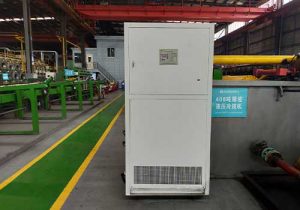low pressure chillers
Understanding Low Pressure Chillers
Low pressure chillers are a subset of industrial refrigeration systems that operate at lower pressures than conventional chillers. They use low pressure refrigerants, such as R134a or CO2, which have lower boiling points and thus require less pressure to operate. This design allows for improved energy efficiency and reduced environmental impact.

Working Principle
The working principle of low pressure chillers is based on the vapor compression cycle, similar to traditional chillers. However, the use of low pressure refrigerants allows for several benefits:
Lower Operating Pressures: Low pressure refrigerants have lower boiling points, which means the compressor doesn’t have to work as hard to compress the refrigerant, reducing energy consumption.
Improved Heat Transfer: Low pressure refrigerants can absorb and release heat more efficiently at lower temperatures, which can improve the overall performance of the chiller.
Environmentally Friendly: Refrigerants like CO2 have a lower global warming potential, making them a more environmentally friendly choice.
Applications of Low Pressure Chillers

Low pressure chillers are used in a variety of applications where moderate to large cooling loads are required:
Data Centers: They are used to cool servers and other IT equipment, maintaining optimal operating temperatures.
Industrial Processing: They are used in processes that require precise temperature control, such as chemical reactions or food processing.
Commercial Buildings: They provide air conditioning for large commercial buildings, shopping centers, and other similar structures.
Market Trends and Technological Developments
The market for low pressure chillers is growing due to several factors:
Energy Efficiency: As energy costs rise and environmental concerns become more prominent, the demand for energy-efficient cooling solutions is increasing.

Environmental Regulations: Stricter regulations on refrigerant emissions are driving the adoption of low pressure chillers that use more environmentally friendly refrigerants.
Technological Advancements: Improvements in compressor technology, such as variable frequency drives (VFDs) and more efficient heat exchangers, are enhancing the performance of low pressure chillers.
Conclusion
Low pressure chillers offer a range of benefits, including energy efficiency, improved heat transfer, and reduced environmental impact. As technology continues to advance and market trends favor more sustainable solutions, low pressure chillers are becoming an increasingly popular choice for a variety of cooling applications. Their ability to provide precise temperature control and their compatibility with environmentally friendly refrigerants make them a strong contender in the industrial refrigeration market.
Related recommendations
What are the Requirements for Adding Refrigerant to Industrial Chillers?
1689What are the Requirements for Adding Refrigerant to Industrial Chillers? After the industrial chiller has passed the vacuum test, if there is no problem, then the refrigerant can be added, bu...
View detailschiller heating system
784A chiller heating system is an integral component of many Heating, Ventilation, and Air Conditioning (HVAC) systems, designed to maintain comfortable temperatures in both commercial and industrial...
View detailswater cooled chiller operation
542An In-Depth Look at Water-Cooled Chiller Operation Water-cooled chillers are essential for cooling systems in industries like manufacturing, pharmaceuticals, and data centers. Their operation i...
View detailsHow to deal with oil leakage in small water chiller?
984How to deal with oil leakage in small water chiller? 1. There are no traces of oil in the oil separator, that is, the oil is not collected in the condenser, but enters the evaporator th...
View details
 LNEYA Chiller
LNEYA Chiller






HelloPlease log in